
Coronary physiology, which includes indexes for the assessment of epicardial vessels and microcirculation, has been introduced and validated to support physicians in their daily clinical decision-making for patients with coronary artery disease.
Despite numerous randomized clinical studies and high levels of recommendation in both European and American guidelines, the integration of coronary physiology into everyday clinical practice remains limited.
Trying to overcome the common barriers in the implementation of coronary physiology, many Italian colleagues originated the #FullPhysiology initiative.
The #FullPhysiology approach consists of a systematic step-by-step assessment of each component of the coronary circulation, including epicardial, microvascular, and vasomotor function.
#FullPhysiology is:
- A daily practice mindset
- Scientific documents
- X account @FullPhysiol
- Scientific events
- A network of Italian centers sharing experience and methodology
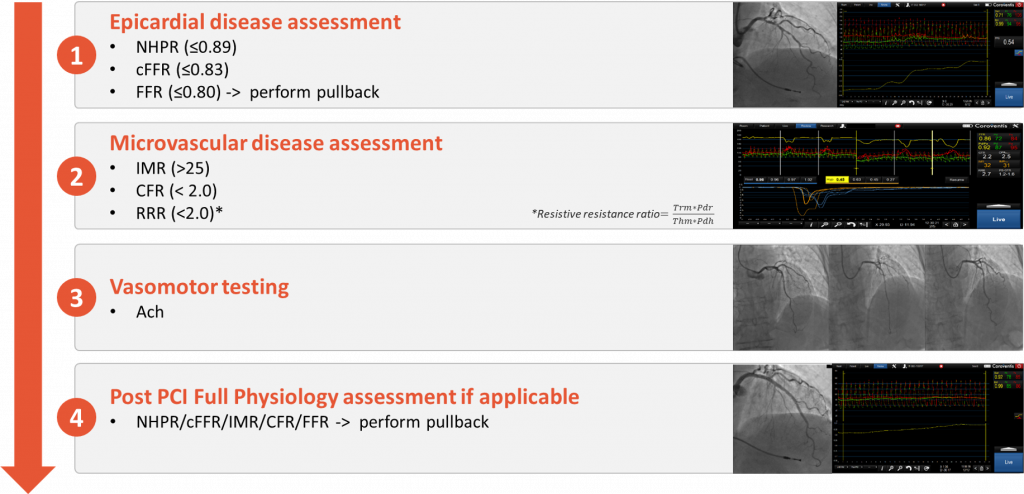
Ongoing studies of the #FullPhysiology squad
Post-Revascularization Optimization and PHysiological Evaluation of intermediaTe Lesions: an FFR-based Single Center Registry
PI: Antonio Maria Leone
Clinicaltrialgov: NCT05056662
Rationale and aims: The PROPHET-FFR study is a single-center, ambispective investigation designed to evaluate the feasibility and clinical efficacy of a physiology-guided percutaneous coronary intervention (PCI) in patients with intermediate coronary stenoses. The study comprises three arms: a control group in which PCI is deferred based on invasive physiological assessment (IPA); an angiography-guided PCI group where IPA is conducted only before PCI; and a physiology-guided PCI group where IPA is performed both pre-PCI—to assess the functional relevance of stenoses—and post-PCI—to evaluate procedural outcomes and enable optimization when necessary. The primary objective is to determine whether a physiology-guided PCI strategy is both feasible and effective in improving mid-term clinical outcomes.
MICROREV: Microvascular Dysfunction Assessment to Predict Left Ventricular Reverse Remodeling
PI: Roberto Scarsini
Clinicaltrialgov: NCT06356727
Rationale and aims: Coronary microvascular dysfunction (CMD) may contribute to adverse remodeling in idiopathic dilated cardiomyopathy (DCM) by inducing chronic ischemia, inflammation, and fibrosis. This prospective, multicenter study investigates CMD’s impact on left ventricular reverse remodeling (LVRR) in newly diagnosed DCM patients (LVEF ≤40%). After excluding obstructive coronary disease, CMD will be assessed invasively with #FullPhysiology. Patients undergo multimodal imaging (echocardiography, CMR, CPET) at baseline and 12 months. The primary endpoint is the impact of CMD on LVRR post-guideline-directed therapy.
IRIN: Insulin Resistance and Coronary Microvascular Dysfunction in Patients with Myocardial Ischemia and Non-obstructive Coronary Artery Disease
PI: Roberto Scarsini (Università di Verona)
Clinicaltrialgov: NCT06597851
Rationale and aims: The IRIN study investigates the correlation between insulin resistance (IR) and coronary microvascular dysfunction (CMD) in patients with ischemia and non-obstructive coronary artery disease (INOCA). This prospective, single-center study includes INOCA patients undergoing coronary angiography with invasive assessment of CMD (IMR, CFR) and vasoreactivity testing (Ach). IR is quantified using the hyperinsulinemic-euglycemic clamp test. Primary endpoint: correlation between IMR and IR. Secondary endpoints: CMD endotypes, response to antianginal therapy, metabolic outcomes, and adverse cardiac remodeling. Findings may refine risk stratification and personalized therapy in INOCA patients.
Reassessment of myocardIAL Bridge TOwards PeRsOnalized Medicine (RIALTO PRO)
PI: Domenico D'Amario
ClinicalTrials.gov ID NCT06281067
Rationale and aims: The "RIALTO-PRO" study aims to optimize the diagnostic and therapeutic algorithm for myocardial bridge (MB) patients. The "RIALTO PRO" study is a randomized, multicentre, prospective, open-label, superiority trial. Patients will be randomised 1:1 to either a "full-physiology approach", consisting of a comprehensive diagnostic algorithm aimed at unmasking the main pathophysiological mechanism of myocardial ischemia and consequently a tailored treatment, or a "standard approach", consisting of angiographic evaluation of the tunnelled segment.
SAMCRO trial: StAndardizing the Management of patients with coronary microvascular dysfunction
PI: Gianluca Campo
Clinicaltrialgov: NCT06025994
Rationale and aims: The SAMCRO is an all comers, prospective, randomized, multicenter, open-label study with blinded adjudicated evaluation of outcomes (PROBE). The diagnosis of angina in non obstructive coronary artery disease (ANOCA) will be confirmed with coronary artery angiography and with the invasive assessment of coronary microvascular dysfunction (CMD) and coronary vasomotion. At least 120 ANOCA patients with invasively confirmed CMD will be randomized to i) multi-domain lifestyle intervention (experimental arm) vs. ii) standard of care (control arm). All patients will undergo follow-up visits at 6, 12, 24, 36, 48 and 60 months. The study endpoints will be the improvement of angina status and quality of life as assessed by validated questionnaires at one year. All participants in the multi-domain lifestyle group will receive five different kinds of intervention: i) dietary counselling, ii) strict management of cardiovascular (CV) and metabolic risk factors, iii) tailoring of medical therapy on the basis of the invasive assessment of CMD and coronary vasomotion, iv) exercise training and v) psychological intervention. Patients randomized to the control group will be managed according to current guidelines. The angina status will be assessed by the Seattle Angina Questionnaire (SAQ). Quality of life will be assessed using the EuroQoL (EQ5D-5L). Anxiety and depression will be assessed using the Beck Depression Inventory (BDI).
Italian centers participating to #FullPhysiology initiative
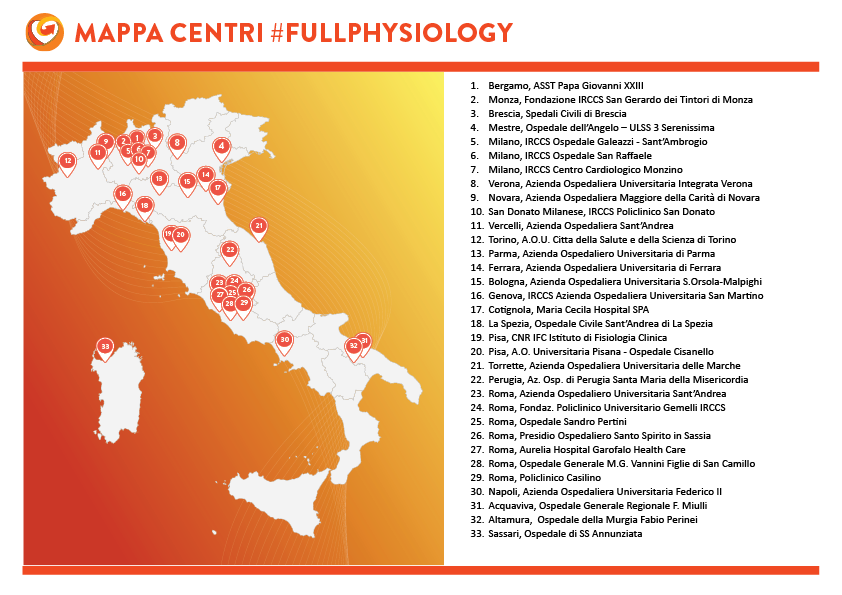
#FullPhysiology is an initiative coordinated by:
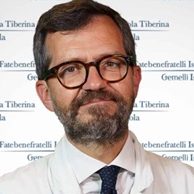
Antonio Maria Leone
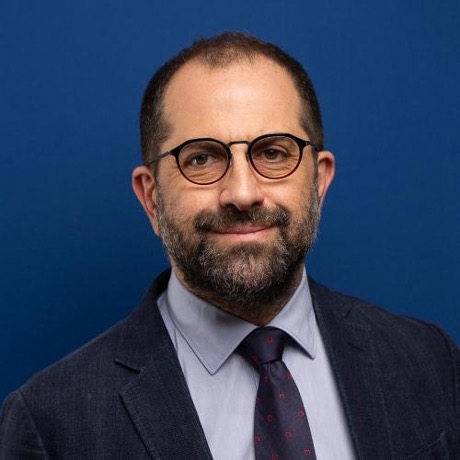
Italo Porto
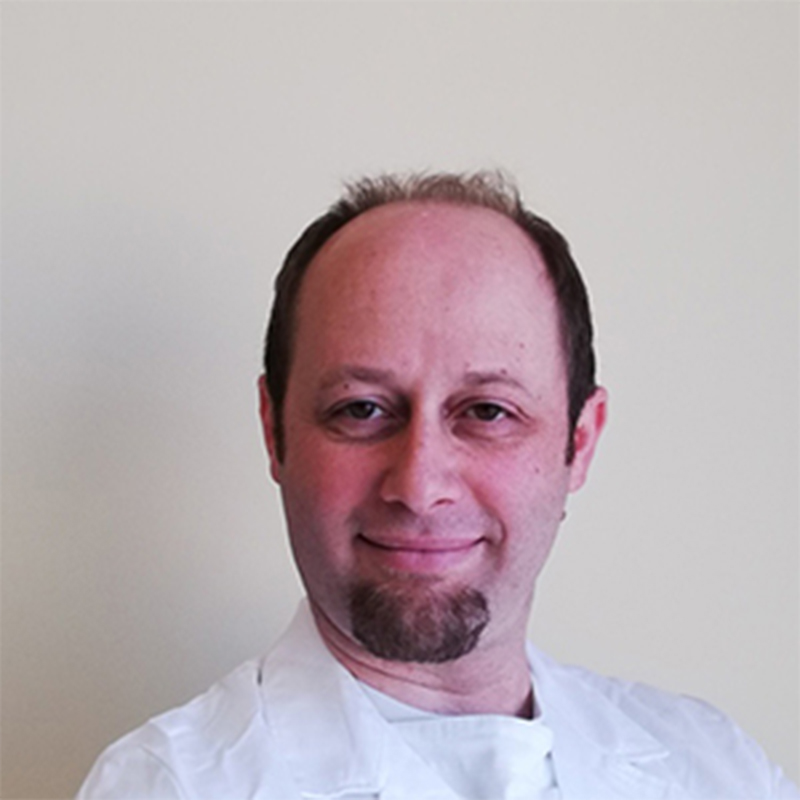
Gianluca Campo
with the unrestricted support by Abbott Vascular

